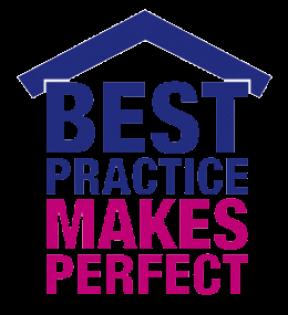From my perspective, talent should be seen as potential energy whereas practice is the force that releases the power of this potential energy.
As the New York Times op-ed elucidates, talent does matter in terms of your maximum possible performance. However as my friend and fellow time management expert Cal Newport beautifully illustrates in his commentary on this article: increased practice matters more than talent in terms of your actual performance output.
How should you practically apply this information?
1. Focus on Your Talents.
Not only do you have a greater potential level of achievement in areas where you have natural talent, but also, you tend to accomplish more in less time and with less effort. As the book StrengthsFinder promotes, focusing on amplifying your strengths instead of fussing over your weaknesses leads to success. Also, when you are in your “sweet spot,” you tend to more quickly receive positive reinforcement for your efforts. You may even find yourself receiving praise for actions that you don’t perceive as out of the ordinary.
2. Practice Before It Hurts.
A huge danger of the super talented lies in the fact that they can “get away” with practicing less than most for years—sometimes decades. But eventually they hit a wall where their raw, dispersed talent no longer provides enough energy to allow them to reach the performance expectations. They need structure to channel the force of their potential energy. If they don’t develop the discipline of practice at this point, their confidence can shatter, which in turn can cause them to falter or even give up entirely. To avoid (or remedy) this situation, it’s essential to:
• Build your practice muscles: Ideally, you learn to practice from Day 1, meaning that you consistently invest time in cultivating your skills. If this hasn’t happened, habit strength training can help you build the necessary structure to direct your talent toward reaching your goals.
• Ask for help: Eventually, you’ll reach the maximum potential you can achieve on your own. Once you hit that point, you need to look to outside teachers, mentors, coaches or colleagues for advice on how to breakthrough the plateau.
• Recognize the dip or the cul-de-sac: As Seth Godin explains in The Dip, to become the best in the world, you need to go through the challenging “dip” before reaching exponential success. In these cases, increased practice pays off and separates the potential successes from the actual ones. However if you’re in a cul-de-sac situation, either due to your innate talent or external circumstances, increased practice will result in minimal return. In the later case, don’t practice more—find out where you can shift your potential energy so your practice will pay off.
So does talent matter? Undeniably, yes. But should you give up if you don’t have off-the-charts talent? Absolutely not.
To live your best life, focus on your talents and keep (or start!) practicing.
Elizabeth Saunders
creativitypost.com



